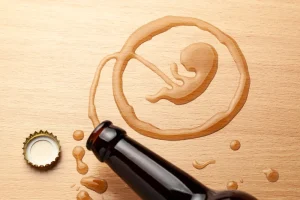
When a person starts abusing alcohol, they may feel they have a good reason. Stress, obligations, trauma, abuse, or any other number of negative circumstances can seem like an acceptable reason to pick up a bottle or have a drink. Being dishonest or lying about alcohol consumption is pretty common with alcoholism. There may be many reasons why someone is hesitant to seek help — from lack of awareness to stigma and shame. Even if you are aware that your drinking has become a problem, it’s common to worry about what others might think.

Offering Protection To People With Alcoholic Denial
It’s a family meeting—often facilitated by a professional who understands what it takes to motivate someone to enter treatment. To learn more about the process and possible next steps for your family. Recognizing denial as the first step in addressing alcoholism is crucial. Only by acknowledging there’s an issue can someone begin taking steps toward recovery.
- People might convince themselves or others that their drinking falls within the “normal” range.
- Of the 44 patients, 10 reported concomitant, secondary use of other drugs, including cocaine (3 subjects), marijuana (3), marijuana and cocaine (1), benzodiazepines (1), and multiple drugs (2 subjects).
- Completing alcohol rehab is a proven method for overcoming alcoholism.
- Most voters do not like the former president and pretty much never have.
- For AUD probands, deniers were less likely to endorse several specific criteria that might offer some insights into why they do not consider themselves problem drinkers.
- The effects of alcoholism on families include stress, anxiety and depression.
Why denial is common for people with AUD
The terms denial (or repression) can be defined as selective ignoring of information. Denial is a form of motivated belief or self-deception that detaches an individual from reality (Bortolotti, 2010). To maintain a positive view of themselves, people revise their beliefs in the face of new evidence of good news but ignore bad news.
Renewal Center for Ongoing Recovery
They need to get their “gettable” voters to stop wallowing in the crapulence of denial, accept that this is the choice and come home. We’ve all heard that many voters—about 20—are so-called double-haters, people who really don’t want to vote for Trump or Biden. Perhaps more important, as recently as a few months ago, an even larger share of voters didn’t believe they would really face a choice between Trump and Biden. Only 33 percent of those surveyed by Economist/YouGov pollsters in March said a Trump-Biden rematch would “definitely” happen.
- For some people, outpatient programs with therapy treatment sessions are a great way to start the recovery journey.
- Remind them that admitting the need for help is the first step towards recovery.
- For example, someone struggling with denial will tell you, “Yeah, I need to cut back” or “This is my last drink,” yet continue drinking excessively without making any real changes in their behavior.
- Senate Bill 456/House Bill 808 will establish local permits to allow for the delivery of alcoholic beverages from businesses authorized to sell them.
- A cursory review of tolerance reports over the years in SDPS AUD probands indicated that this variable had been endorsed by AUD probands at age 35 at a rate similar to the current AUD offspring.
They may also engage in evasion, deception and manipulation to distort the truth about their alcoholism. It is important to recognize that just because you have realized that your loved one may be in need of an alcohol addiction treatment program, that does not mean they will agree. Senate Bill 134/House Bill 297 will establish an office of the correctional ombudsman to investigate administrative misdeeds, inspect prisons, and review physical and mental health care services in Maryland’s correctional system. The office will also evaluate any plans to renovate or close facilities, education and job programs, and policies on restrictive and protective housing.
“Always approach a loved one from a place of support and desire to help them, instead of leading with judgment or anger,” says Omar Elhaj, MD, a senior medical director at LifeStance Health. According to Conroy, it may be easy to get caught in denial with AUD if you subconsciously feel something is wrong with you at your core. It also might mean admitting that they don’t have it all together, and their exterior (and interior) world why are alcoholics in denial is crumbling. What might look like denial may actually be a lot more complicated and multilayered for people with high-functioning AUD. You suspect your spouse, close friend, or relative has a drinking problem. “One day, after Sherri was already in prison, as I go and lay my daughter to bed, I push off the bed and I kind of make a little grunt sounds, like ‘Ah!’ You know, I was a little bit sore,” Keith says in the docuseries.

How to approach your loved one
Mel Curtis reports that in her high-end media job, “The whole drinking culture was not just accepted, but expected.” And it’s not just in the workplace; alcohol is glamorized by society at seemingly every turn. High-functioning alcoholism is harder to identify because it doesn’t fit the “drunk” stereotype. Last year was the hottest ever and recorded the highest number of billion-dollar weather and climate disasters. Not to mention that over the past few years, mass shootings have significantly increased, we’ve seen unparalleled attacks on democracy and science, and mental health issues have skyrocketed. This subreddit is a place to motivate each other to control or stop drinking. We welcome anyone who wishes to join in by asking for support, sharing our experiences and stories, or just encouraging someone who is trying to quit.
Moving from denial toward meaningful change
At some point in life, everyone experiences denial, a natural response when you’re unable or unwilling to face the facts. You may use denial as a way to protect yourself from having to see, deal with, or accept the truth about what’s happening in your life. Addiction can also be https://ecosoberhouse.com/article/why-alcohol-makes-you-feel-hot-and-sweat-after-drinking/ a source of terrible shame, self-hatred, and low self-worth. For an addict, it can be terrifying to acknowledge the harm one has done by one’s addiction to oneself and potentially to others one cares for. When they are high, their fears of inadequacy and unworthiness fade away.
